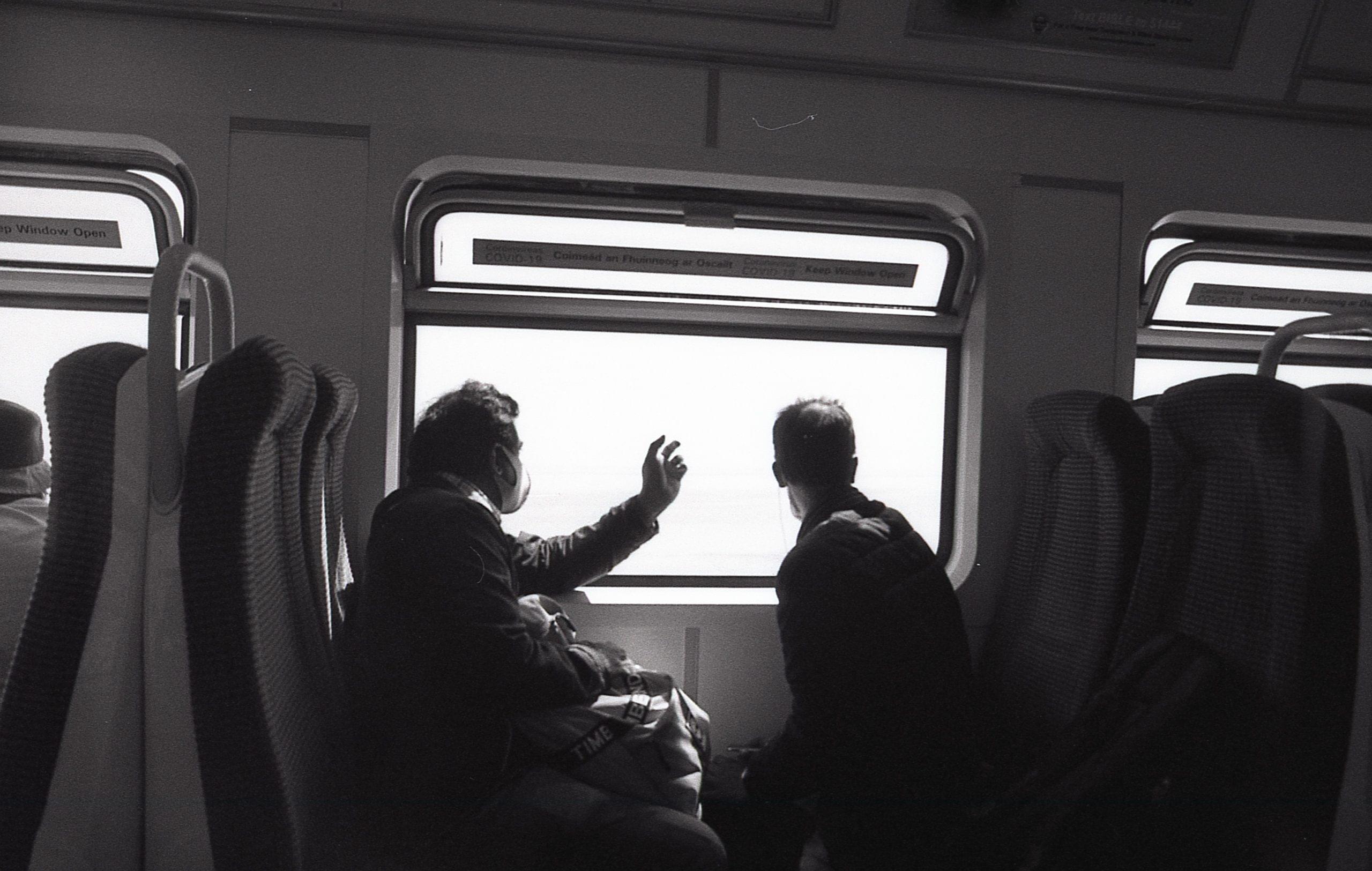As a student in Dublin today, it’s rather difficult not to notice the rising trend of taking edgy and sophisticated photographs of the everyday. Most notably on film. Film has seemed to have seduced a whole generation despite living in an all-digital age. With smartphone cameras constantly improving and endless filters, some may even question why film cameras have made such a comeback. Sitting down with two committee members of the Dublin University Photography Association (DUPA), third year Drama and Theatre Studies student, Clara Cronin, and final year Economics and Sociology student, Joe O’Connor, we discussed their experience with film, the beauty they see in it and its everlasting qualities. I also posed the real question surrounding the society: film or digital?
“I only shoot film. I don’t even own a digital camera and I think I’m the only exclusively film person on committee”, shared O’Connor (Ordinary Committee Member). “I think I’d kind of kill it if I started shooting digital, like I just can’t see myself doing it”, he added. DUPA pride themselves in being a band of film photographers, and there’s only “two people on the current committee who predominantly shoot digital. It’s kind of gas”, revealed Cronin (Trips Coordinator).
The two expressed how much more rewarding the act of film photography is over digital, and also the exclusivity of the one photograph having so much more value. “You really appreciate them more. On digital you could take a hundred photos, and I personally hate going through loads to pick the best ones. I find that when you’re going through photos you’ve taken, you gravitate towards the three best ones, but don’t really appreciate the rest of them”, said Cronin.
Film allows moments to be immortalised forever and naturally creates sentimental appeal and O’Connor went on to express his feelings on the speciality in reserving photos: “It’s always so nice having a physical copy. People our age wouldn’t have many pictures of ourselves when we were teenagers because they were all thrown on Facebook or whatever. With my film, I’ve a big box full of negatives and they’ll be there forever… In a hundred years time someone would be able to sit and look at them.” With this sweet fact Cronin agreed, and said: “Like imagine your kids or grandkids looking through those prints. They’re not going to be sourcing your Facebook from fifty years ago.”
“‘Digital allows you to make more mistakes which is so important when you’re learning. Digital is definitely great as it allows you to be reckless and quick’, explained Cronin.”
After a short camera show and tell from the two committee members with Cronin modelling a little Sony digital camera given to her by an uncle and O’Connor his own medium format camera, I asked if they believe there to be both unique aspects to film and digital. “For sure. I think because a lot of what I do is shooting for theatre I’d find it very, very difficult to shoot it all on film and you have to be really careful. Digital allows you to make more mistakes which is so important when you’re learning. Digital is definitely great as it allows you to be reckless and quick”, explained Cronin.
As she spends a lot of time with her camera in the theatre, she prefers not shooting in “such a crazy hectic environment and running after people…I relax more with film and it has more great things about it, but, saying that, so does digital as you don’t have to worry as much about settings”, she confessed.
“Yeah, obviously film is a bit more finicky, and a lot of us on committee use medium format film which is even more so. You only get ten shots on a roll instead of thirty-six, and it’s more expensive and the camera’s are harder to use”, added O’Connor. Although film has his heart, he shared that he does respect digital photography but it’s the technical challenge of film that appeals to him the most. The love of the expectation. Both O’Connor and Cronin agreed that something they enjoy most about film photography is how much of a tremendous social act showing and receiving film can be. Especially in the DUPA sphere.
When asked what tips they would give to first time film photographers both recommended getting your hands on a point and shoot as “you get to try out the film process and then ease your way into the manual focuses on cameras”, shared Cronin. “I really started to get into photography with my phone”. As so many of us do in the hope of pursuing an Instagram career. “I think these days with your phone everyone is a photographer in their own ways, but when it comes to the actual art and technicalities of it, it’s all down to noticing things more through a lens. You begin to start picking out things in photos you like and compositions and colours and textures.” The photographers expressed that you need to try and figure out what it is you like about photography and what you want to shoot on an actual camera. One with a camera must develop their eye for confidence behind the lens.
When I asked those around me why they enjoy taking photos, most of them answered with memories, capturing special/random moments, and the most popular; for the gram. O’Connor and Cronin continually mentioned that with photography, it’s experience that will inspire you. DUPA offers classes in both film and digital photography, and has cameras available for rent to capture your life on film.






